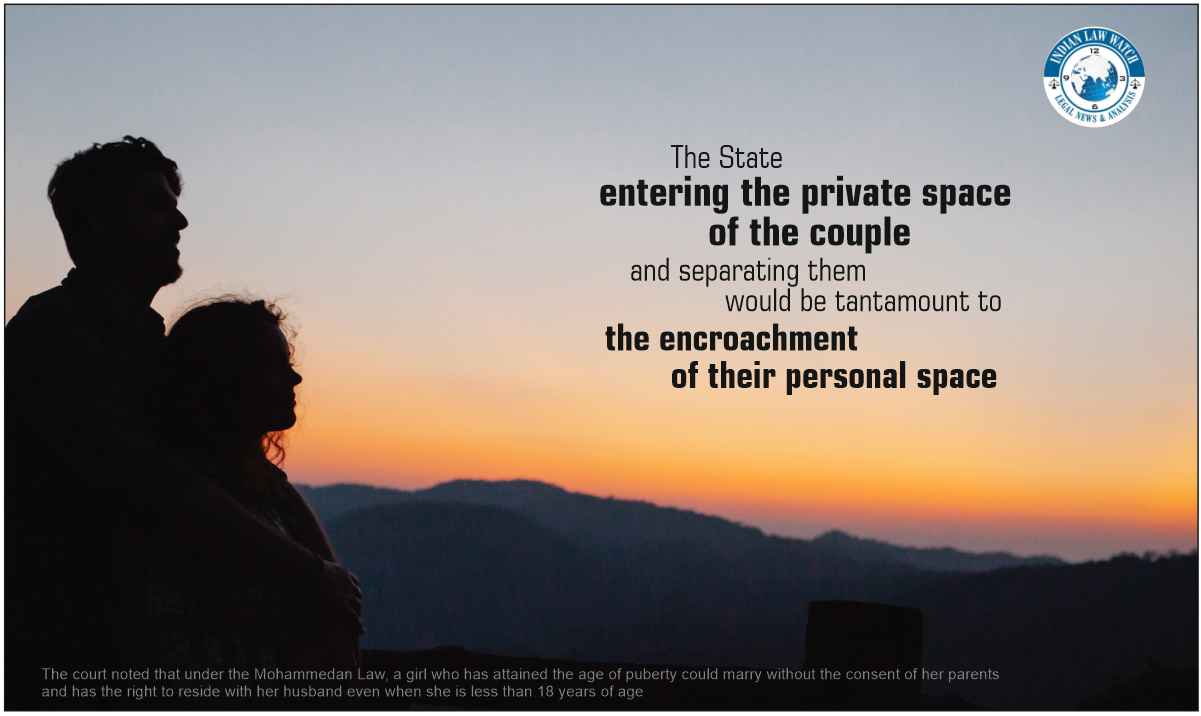

The order was passed by the court while dealing with a petition by a Muslim male and a Muslim minor girl who got married as per religious customs in Bihar after eloping and now sought protection from the court.
A lawfully wedded couple cannot be denied each other’s company which is the essence of marriage and the State cannot enter the private space of a wilfully married couple and separate them, the Delhi High Court has said.

-
The order was passed by Justice Jasmeet Singh while dealing with a petition by a Muslim male and a Muslim minor girl who got married to each other as per religious customs in Bihar after eloping and now sought protection from the court as well as directions to ensure that nobody separates them from each other.
-
The court noted that under the Mohammedan Law, a girl who has attained the age of puberty could marry without the consent of her parents and has the right to reside with her husband even when she is less than 18 years of age and thus directed that the authorities concerned to ensure safety and protection of the married couple which is entitled to stay together and was expecting a child.
-
The court further said that the State entering the private space of the couple and separating them would be tantamount to the encroachment of their personal space and the aim of the State is to protect the best interest of the female petitioner who was 15 years of age at the time of marriage and was stated to be regularly beaten by her parents at home and being forced to marry someone else.
-
“The petitioners being lawfully wedded to each other cannot be denied the company of each other which is the essence of the marriage. If the petitioners are separated, it will only cause more trauma to the petitioner no.1 and her unborn child. The aim of the state here is to protect the best interest of Petitioner no.1.
-
” If the petitioner has wilfully consented to the marriage and is happy, the state is no one to enter the private space of the petitioner and separate the couple. The doing of the same will tantamount to the encroachment of personal space by the State,” said the court in its order dated August 17.
-
The court, in its order, noted that the present case was not one of “exploitation but a case where the petitioners were in love, got married according to the Muslim laws, and thereafter, had physical relationships”.
“The petitioners are entitled to stay together and the respondent Nos. 1 to 3 (State authorities) are directed to ensure the personal safety and protection of the petitioners,” the court ordered.
Source: The Indian Express





